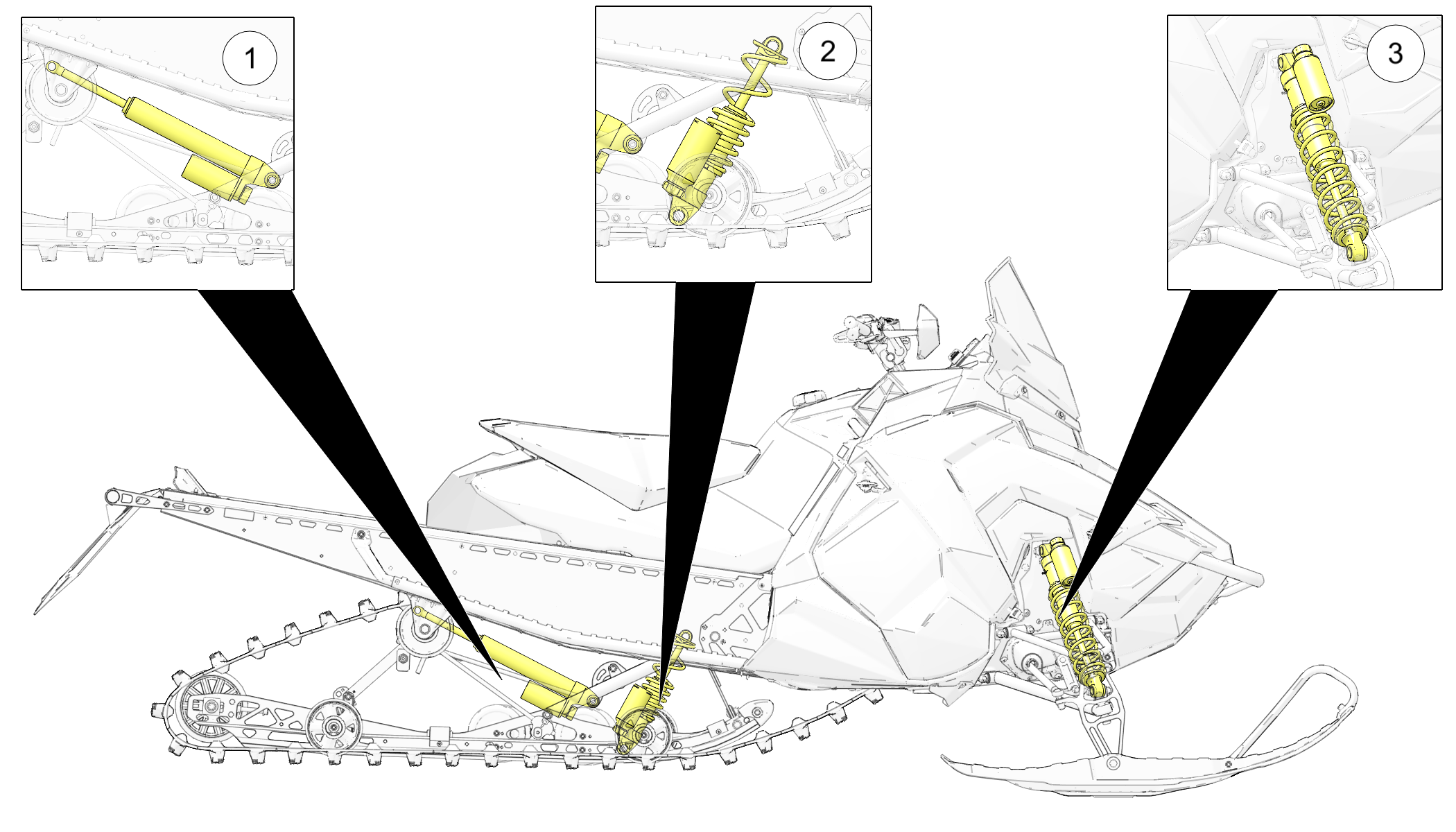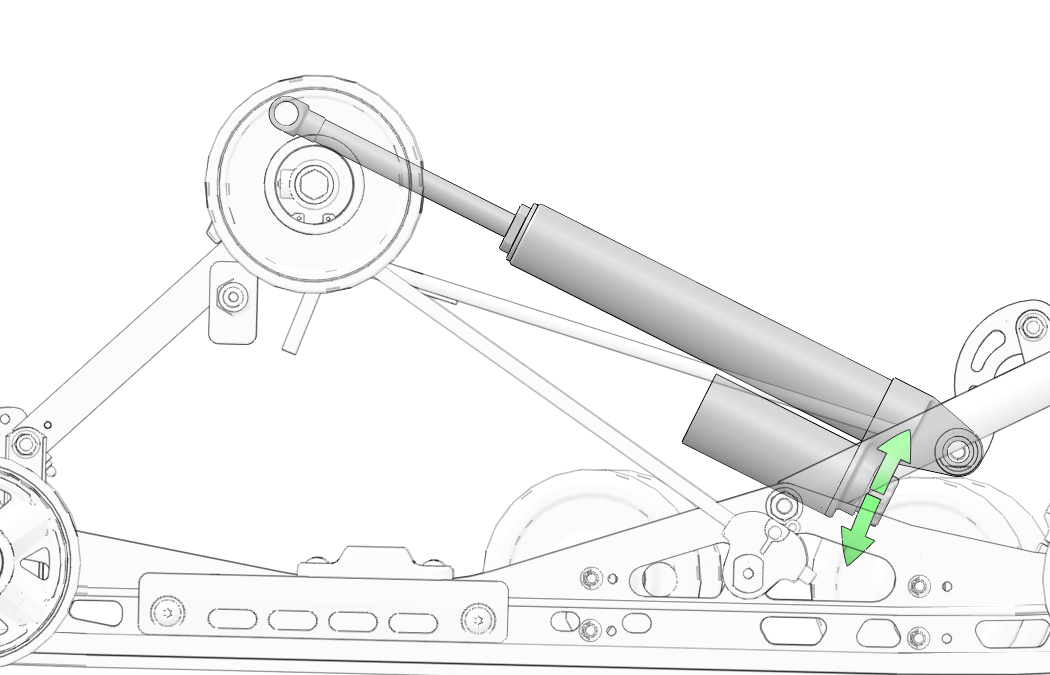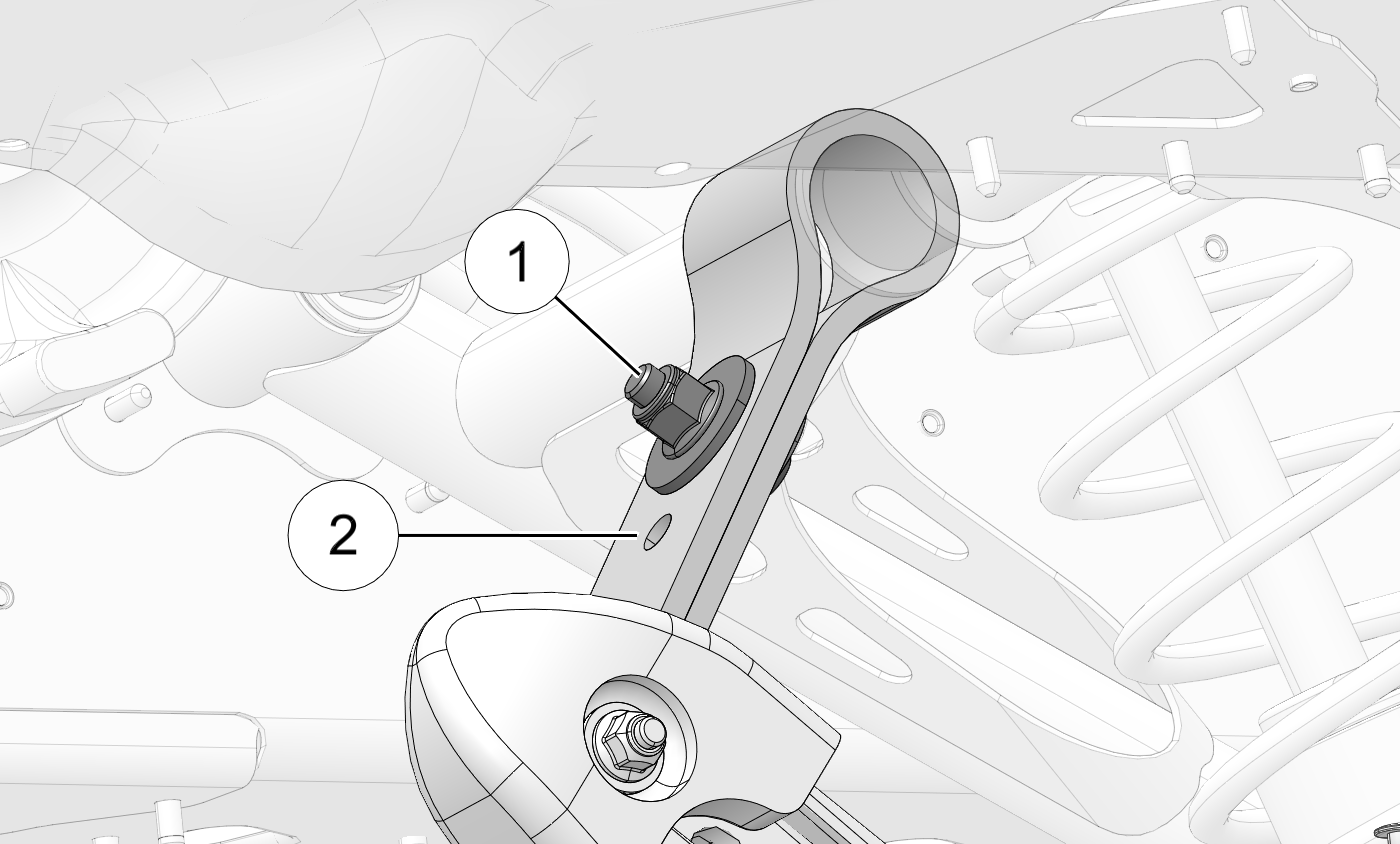
Content Source: 2019 Switchback Assault / Switchback Adventure / Voyageur / Indy SP / RMK / SKS Owner’s Manual (9928878 R02) > The Perfect Fit Chapter
| IMPORTANT |
|
The Owner's Manual for this vehicle contains warnings, instructions and other information you must read and fully understand before safely riding or performing maintenance on this vehicle.Always follow the warnings and instructions in Owner's Manual. Click the CONTENTS link above for the Table Of Contents, or download a full PDF of the Owner Manual in the Owner Support area of Polaris.com |
| NOTE |
| Always adjust the clicker at least one click below full stiff (full clockwise) or shock damage could occur. |
| NOTE |
| Adding traction components, such as traction studs or additional ski skag carbides, or changing the factory equipped track, could change handling characteristics. Addition setup may be required. |

|
Part Number |
Spring Type |
Description |
|---|---|---|
|
7041942–329 |
Spring, Torsion |
.375/77, BLK, LH, HEAVY |
|
7041943–329 |
Spring, Torsion |
.375/77, BLK, RH, HEAVY |
|
7041627–067 |
Spring, Torsion |
.347/77, BLK, LH, LIGHT |
|
7041628–067 |
Spring, Torsion |
.347/77, BLK, RH, LIGHT |

|
Model |
Clicker Setting (from full soft) |
|---|---|
|
Switchback Assault |
8 |
|
SKS 146 |
8 |
| NOTICE |
|
Never adjust spring preload to an installed length longer
than the factory length or shorter than the minimum length as shown
in the following chart.
Damage to the suspension could result. When decreasing preload, make
sure at least two turns of preload
are holding the retainer
against the spring.
|
|
Factory Spring |
Maximum Installed Length |
Minimum Installed Length |
|---|---|---|
|
Switchback ASSAULT SKS 146 |
1.25" (3.2 cm) |
1" (2.5 cm) |
|
Switchback SP |
2" (5 cm) |
1.75" (4.5 cm) |
|
600 RMK 144 |
Not Adjustable | Not Adjustable |
|
600 Voyageur |
Not Adjustable | Not Adjustable |
|
Model |
Clicker Setting (from full soft) |
|---|---|
|
Switchback ASSAULT |
2 |
|
SKS 146 |
2 |
|
FACTORY SPRING |
FACTORY INSTALLED LENGTH |
MINIMUM INSTALLED LENGTH |
|---|---|---|
|
Switchback ASSAULT |
10” (25.4 cm) |
9.5” (24 cm) |
|
SKS 146 |
10” (25.4 cm) |
9.5” (24 cm) |
|
Switchback SP |
10” (25.4 cm) |
9.5” (24 cm) |
|
600 RMK 144 |
10.5” (26.7 cm) |
10” (25.4) |
|
600 Voyageur |
10.5” (26.7 cm) |
10” (25.4) |
|
Model |
Clicker Setting (from full soft) |
|---|---|
|
Switchback ASSAULT |
6 |
|
SKS 146 |
6 |
POLARIS recommends
leaving the limiter strap length at position ![]() to maintain the optimum ride characteristics of the
snowmobile. Riders who desire less ski pressure and more weight transfer
toward the rear of the snowmobile can lengthen the
limiter strap by changing to position
to maintain the optimum ride characteristics of the
snowmobile. Riders who desire less ski pressure and more weight transfer
toward the rear of the snowmobile can lengthen the
limiter strap by changing to position ![]() .
.

| TORQUE | |
|
16 ft-lbs (21 Nm). |
© Copyright Polaris Industries Inc. All rights reserved.